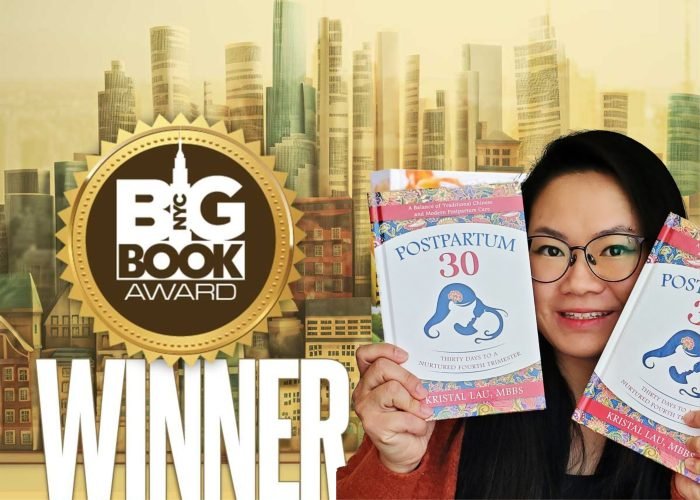Your postpartum wellness plan should nurture your body, mind, and soul. Ready to prioritize your health, rebuild your strength, and feel empowered as a new mom? Let’s get into what true postpartum care looks like.
The Postpartum Wellness Plan: Caring for You, Mom
It’s easy to get caught up in the whirlwind of motherhood—the late nights, the constant feedings, the endless diaper changes—and before you know it, the months start slipping by. But here’s the thing: postpartum wellness isn’t about getting back to “normal.” It’s about nurturing you. It’s about honoring the emotional, mental, and physical journey you’re on. Yes, we’re talking about caring for your body after birth, but it’s also about taking a breath, looking inward, and giving yourself the love and space you need to heal and grow.
So, what does a postpartum wellness plan even look like? It’s deeply personal. And it should feel less like a “to-do” list and more like a guide that cares for your entire being, day by day, as you step into a new chapter. Let’s break it down together.
Why Postpartum Wellness Matters
We often hear the term “bounce back” after pregnancy, but that sets unrealistic expectations. The body goes through immense changes—physically, emotionally, and hormonally. During that time, you’re adjusting not only to being a new mom but to a whole new life, with new routines, new challenges, and new joys.
But here’s the thing: postpartum wellness isn’t about going back. It’s about moving forward in a way that’s healthy for YOU, wherever you are. The process requires a blend of gentle physical recovery, emotional and mental support, and plenty of space for self-compassion. So, let’s take a closer look at the key aspects that will move you forward with care and support.
Physical Recovery and Self-Care: The Heart of Postpartum Wellness
It’s easy to get caught up in trying to “get your body back” after childbirth. But real wellness doesn’t come from rushing or trying to match some societal standard. It’s about taking the time to listen to your body and give it the nourishment it needs.

1. Physical Activity: Take It Slow, But Move Your Body
One of the most important parts of postpartum wellness is reintroducing physical activity. It doesn’t mean jumping into intense workouts right away—your body needs time to recover, especially after pregnancy and childbirth.
The CDC recommends that new mothers engage in moderate-intensity physical activity for at least 150 minutes per week. That could be something gentle, like walking, yoga, or even some light stretching. The activities support recovery, improve circulation, and boost your mood (which is so important when you’re adjusting to a new lifestyle).
But be patient with yourself. You don’t need to rush. Start slow and gradually build up your activity level as your body allows. And don’t be afraid to ask for assistance. You’ve just given birth—let others support you as you find your rhythm.
2. Nutrition: Fueling Your Body with Love
Your body has done a lot—growing and birthing a baby is no small feat. Now, it needs the right fuel to heal, recover, and support your new life as a mother. A balanced diet rich in fruits, vegetables, whole grains, and lean proteins is crucial for recovery.
If you’re breastfeeding, you may need about 500 extra calories per day to support milk production. So, don’t feel guilty for needing that extra snack!
Postpartum nutrition is also about mindset. Don’t stress over perfection—simply focus on getting the right foods into your body to keep you feeling energized, strong, and healthy.
3. Sleep: Oh, Sweet Sleep
If you’re a new mom, chances are, sleep has become a luxury. But sleep is vital for your well-being. The National Institutes of Health (NIH) recommends that new mothers get at least 7-9 hours of sleep per night when possible. We know it’s easier said than done, especially with a newborn in the mix.
Even if it’s a couple of hours of uninterrupted sleep here and there, it makes a difference. And if you’re feeling overwhelmed, don’t hesitate to ask your partner, a family member, or a friend to step in for a bit so you may catch up on your much-needed rest.
4. Routine Check-Ups: Regular Appointments for a Healthier You
You may feel like you’ve been to the doctor a hundred times during pregnancy, but it doesn’t stop there. Regular postpartum check-ups are essential to monitor both your physical and mental health. According to the American College of Obstetricians and Gynecologists (ACOG), you should schedule a follow-up appointment within 6 weeks of delivery. It is a time to discuss any lingering health issues, ask questions, and get the support you need.
But it doesn’t end with that one appointment. Dr. Kristal Lau advocates for ongoing care that adapts to your ever-changing needs. Whether it’s a physical recovery issue, emotional struggles, or anything else that comes up, having a healthcare provider who’s there for you continuously is invaluable.
Mental Health and Emotional Well-being
The transition to motherhood brings emotional highs and lows. It’s normal to feel overwhelmed, unsure, or even sad. But you must acknowledge those feelings and take steps toward managing them.
5. Postpartum Depression and Anxiety
It’s normal to experience feelings of sadness or anxiety in the days and weeks after childbirth, but for some moms, such feelings turn into something more intense, like postpartum depression (PPD) or postpartum anxiety. Both are common mental health conditions that impact well-being.
According to research, around 1 in 7 women experience postpartum depression, and about 1 in 5 women experience postpartum anxiety.
6. Mindfulness and Therapy: Healing the Mind
Mindfulness practices are incredibly effective in managing stress and anxiety. Take moments throughout the day to breathe, reflect, or even meditate to stay grounded and focused on the present moment. Therapy, whether through talking with a professional or in a group setting, also helps you work through any emotional challenges you may be facing.
Remember: your mental health is as important as your physical health. Don’t neglect it. Self-compassion, mindfulness, and seeking professional support are key to nurturing your emotional well-being during the postpartum period.
Family Support: A Wellness Plan That Includes Everyone
Finally, you must recognize that postpartum wellness isn’t about you only, it’s about your whole family. That means having a strong network of family and friends who can step in when needed, providing emotional support, and taking over some household responsibilities.
We recommend that you and members of your family engage in open discussions about wellness, mental health, and family planning. The conversations create an environment of understanding and support, which ultimately leads to a healthier, happier transition into life as a family.
Remember, mama, you deserve love, care, and the time you need to heal. Your wellness plan isn’t about following some formula—it’s about doing what feels right for you and your family.
You’re doing an incredible job. Take it one day at a time, and remember to always show yourself the same kindness and care you give to your baby.

